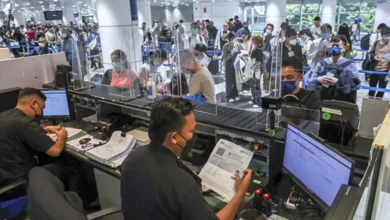Harmony, unity among Malaysians intact due to Rukun Negara

KUALA LUMPUR, June 22 — The harmony and unity among Malaysia’s multiracial community over the last five decades is a direct manifestation of the five principles of the Rukun Negara.
In fact, the declaration of the national philosophy, which turns 50 on August 31, proves the maturity and nobility of those principles and inculcates good values among the people, despite claims from certain quarters that its essence has faded or diminished over time.
It is evident that Malaysians still enjoy peace and prosperity by adhering to the tenets: Belief in God; Loyalty to King and Country; The Supremacy of the Constitution; The Rule of Law; and Courtesy and Morality.
The main purpose of the Rukun Negara was to strengthen and restore unity among Malaysians following the riots on May 13, 1969, which led to the suspension of the Parliament session and forcing the declaration of a state of emergency.
Following the incident, the National Unity Department was established on July 1, 1969, and the National Goodwill Council on July 18, 1969.
However, efforts to rebuild the trust and unity among the people had begun much earlier, with a series of activities planned, such as public durian feasts held from June to August.
Among those involved in the effort is the founding director of the Institute of Ethnic Studies (KITA) at Universiti Kebangsaan Malaysia (UKM), Prof Datuk Dr Shamsul Amri Baharuddin who conducted musical performances during the durian feasts around Kuala Lumpur.
“The purpose of the durian feasts was none other than to stabilise the situation following the chaos,” said the former student of the Royal Military College.
For Shamsul Amri, the Rukun Negara was a concrete move to restore the peace and harmony of the people and bring stability to race relations in the country.
“We cannot discuss the Rukun Negara without discussing the issue of unity,” he told Bernama in an interview ahead of the 50th anniversary of the Rukun Negara in conjunction with the celebration of Independence Month and 2020 National Day.
According to Shamsul Amri, the principles contained within the Rukun Negara were eternal and suitable for all generations, and the declaration has facilitated the three main phases of recovery in terms of national unity.
He categorised them as the security and stability phase from 1969 to 1990, the stability and tranquillity phase from 1990 to 2008 and the social integration phase from 2008 to 2018.
He said that the first phase was more about trying to stabilise the situation and allay concerns over economic, political and social disparity at the time, which led to the introduction of the New Economic Policy (NEP).
The second phase, he added, saw society become more informed, besides facilitating the transition from an illiterate to a well-educated and politically savvy community.
“The people during this time were more mature and understood the principles of the Rukun Negara. They became increasingly aware of the separation of powers of the royalty, legislature, parliament, constitution and so on.
“As the people matured over time, it led to the concept of solidarity in the third phase where we agree to disagree.”
In other words, he said Malaysians were now more inclusive and respectful of others’ customs and cultures which has become an ‘unwritten agreement’, in line with the needs of the multiracial community in the country.
Shamsul Amri said that while it was difficult to measure to which extent Malaysians appreciated the five principles embodied in the Rukun Negara, it could be seen in terms of how it was reflected in people’s lives.
“As long as there is the belief in God and religion, as long as there is loyalty to the King and the State, as long as the Constitution is in force, as long as the people respect the law and still practise courtesy and morality, the Rukun Negara will continue to be effective for the people,” he said.
Citing the implementation of the Movement Control Order (MCO) from March 18 up to the Recovery Movement Control Order (RMCO) to this day to curb the spread of the COVID-19 pandemic, he said in general, the people respected the law set by the government as prescribed in the Rukun Negara.
“The MCO period demonstrates the people’s obedience and in general, that they want peace and unity to continue to be the fortress of the nation. This is the beauty of the people of Malaysia and it is a key measure of the success of the Rukun Negara,” he added.
— BERNAMA




